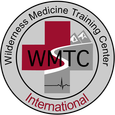|
At WMTC, our mission and passion is delivering quality wilderness medicine education that is effective and practical. While teaching and traveling in the outdoors is central to wilderness medicine training, we also understand the challenges of spending time away from the normal routines of life. We developed this hybrid course to allow for greater flexibility without compromising the quality of our curriculum and your education.
Unparalleled Instruction in Wilderness Medicine
| ||

